-
 bitcoin
bitcoin $87959.907984 USD
1.34% -
 ethereum
ethereum $2920.497338 USD
3.04% -
 tether
tether $0.999775 USD
0.00% -
 xrp
xrp $2.237324 USD
8.12% -
 bnb
bnb $860.243768 USD
0.90% -
 solana
solana $138.089498 USD
5.43% -
 usd-coin
usd-coin $0.999807 USD
0.01% -
 tron
tron $0.272801 USD
-1.53% -
 dogecoin
dogecoin $0.150904 USD
2.96% -
 cardano
cardano $0.421635 USD
1.97% -
 hyperliquid
hyperliquid $32.152445 USD
2.23% -
 bitcoin-cash
bitcoin-cash $533.301069 USD
-1.94% -
 chainlink
chainlink $12.953417 USD
2.68% -
 unus-sed-leo
unus-sed-leo $9.535951 USD
0.73% -
 zcash
zcash $521.483386 USD
-2.87%
How is the "J line" in the KDJ indicator calculated?
The J line in the KDJ indicator amplifies momentum signals, often exceeding 100 or dropping below 0 to highlight overbought or oversold conditions in crypto markets.
Sep 20, 2025 at 03:18 am
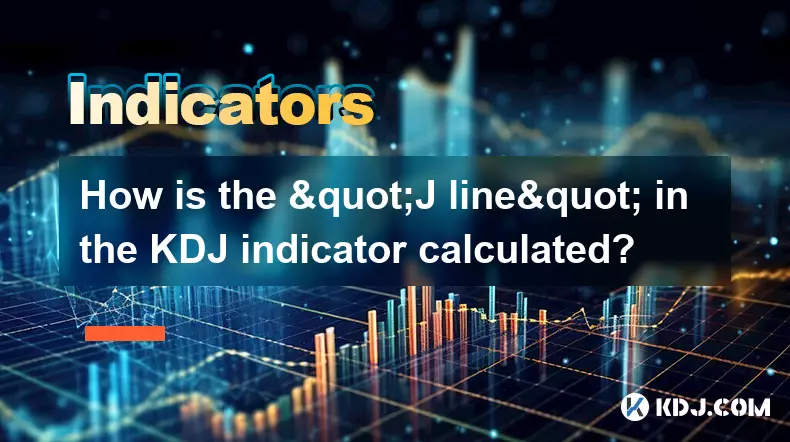
Understanding the J Line in KDJ Indicator
The KDJ indicator is a popular technical analysis tool used in financial markets, including cryptocurrency trading. It expands upon the Stochastic Oscillator by adding the J line, which provides deeper insight into momentum and potential reversal points.
- The KDJ indicator consists of three lines: K, D, and J.
- The K line is derived from the raw stochastic value, reflecting the current closing price relative to the price range over a specific period, usually 9 periods.
- The D line is a moving average of the K line, typically calculated over 3 periods, smoothing out fluctuations for clearer trend signals.
- The J line is computed using the formula: J = 3 × K - 2 × D.
- This formula amplifies the divergence between K and D, making the J line more sensitive to price changes and often reaching extreme levels faster than K or D.
Mathematical Foundation of the J Line
The calculation process begins with identifying the highest high and lowest low over a lookback period, commonly set at 9 candles.
- %K is calculated as: (Current Close - Lowest Low) / (Highest High - Lowest Low) × 100.
- A 3-period simple moving average of %K gives the %D value.
- Once %K and %D are established, the J line is derived directly from them using the standard formula.
- Because the J line multiplies %K by 3 and subtracts twice the %D, it can extend beyond the typical 0–100 range, producing values above 100 or below 0 during strong trends.
- These extremes indicate overbought or oversold conditions more aggressively than the K and D lines alone.
Role of the J Line in Crypto Trading
In the volatile environment of cryptocurrency markets, the J line serves as an early signal generator for potential entry and exit points.
- When the J line surges above 100, it suggests the asset may be overbought, signaling a possible pullback or reversal.
- Conversely, when the J line drops below 0, it indicates an oversold condition, hinting at a potential upward correction.
- Traders watch for crossovers between the J line and the K or D lines to confirm momentum shifts.
- In trending markets, the J line can remain in overbought or oversold territory for extended periods, so context matters when interpreting its values.
- Combining the J line with volume indicators or moving averages improves signal reliability and reduces false triggers.
Common Questions About the KDJ Indicator
What does a J line value above 100 mean?A J line exceeding 100 indicates strong upward momentum, often seen in fast-rising crypto prices. While traditionally viewed as overbought, in strong uptrends, this can reflect sustained bullish pressure rather than an immediate reversal signal.
Can the J line be used alone for trading decisions?Relying solely on the J line is risky due to its sensitivity. It generates frequent signals, some of which may be false, especially in choppy markets. It performs best when combined with other tools like RSI, MACD, or support/resistance levels.
How does the J line differ from the RSI?While both assess momentum, the J line is based on the stochastic framework, comparing closing prices to a recent range, whereas RSI measures the speed and change of price movements. The J line reacts faster and can go beyond 100 or below 0, unlike RSI, which is capped at 0–100.
Is the KDJ indicator effective in sideways crypto markets?Yes, in ranging markets, the KDJ indicator excels at identifying reversal points near support and resistance. The J line’s sharp swings help spot short-term tops and bottoms, making it useful for scalping or range-bound strategies.
Disclaimer:info@kdj.com
The information provided is not trading advice. kdj.com does not assume any responsibility for any investments made based on the information provided in this article. Cryptocurrencies are highly volatile and it is highly recommended that you invest with caution after thorough research!
If you believe that the content used on this website infringes your copyright, please contact us immediately (info@kdj.com) and we will delete it promptly.
- Crypto Crossroads: Bitcoin Price Reacts to Fed Jitters Amidst Shifting Sands
- 2026-02-02 05:05:02
- Justin Sun, Tron, Manipulation Allegations: New Bitcoin Strategy Meets Lingering Controversy
- 2026-02-02 05:05:02
- Bitcoin Eyes $77K as Michael Saylor Reaffirms Unwavering Conviction Amidst Market Swings
- 2026-02-02 05:00:02
- Altcoin Season on the Horizon? ETH, XRP, SOL, ADA Face Potential 184x Gains Amidst Shifting Crypto Landscape
- 2026-02-02 05:00:02
- Bitcoin ETF News: Latest Updates Drive Investment and Market Dynamics
- 2026-02-02 04:50:02
- Rare Royal Mint Coin Error Fetches Over £100: The 'Fried Egg' £1 Coin Phenomenon
- 2026-02-02 04:45:01
Related knowledge
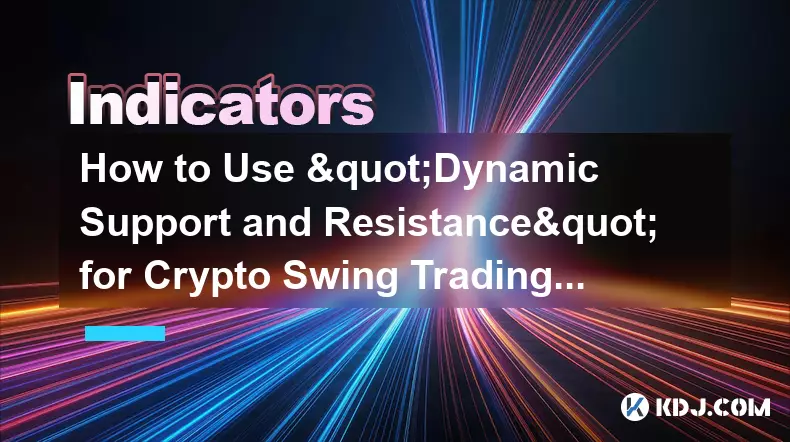
How to Use "Dynamic Support and Resistance" for Crypto Swing Trading? (EMA)
Feb 01,2026 at 12:20am
Understanding Dynamic Support and Resistance in Crypto Markets1. Dynamic support and resistance levels shift over time based on price action and movin...
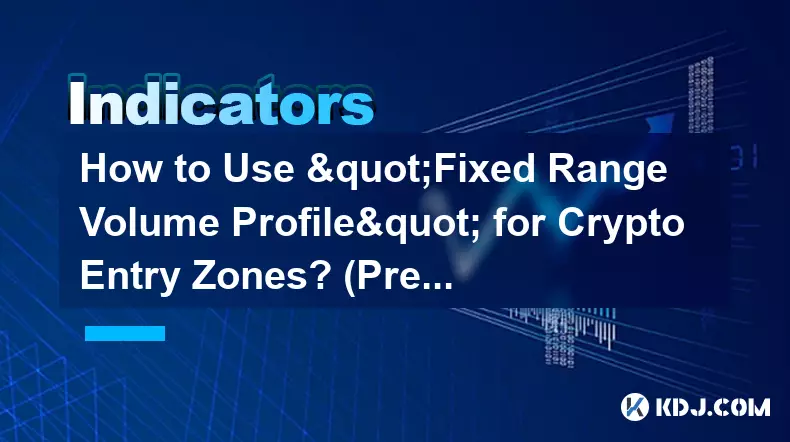
How to Use "Fixed Range Volume Profile" for Crypto Entry Zones? (Precision)
Feb 01,2026 at 10:19pm
Understanding Fixed Range Volume Profile Mechanics1. Fixed Range Volume Profile (FRVP) maps traded volume at specific price levels within a defined ti...
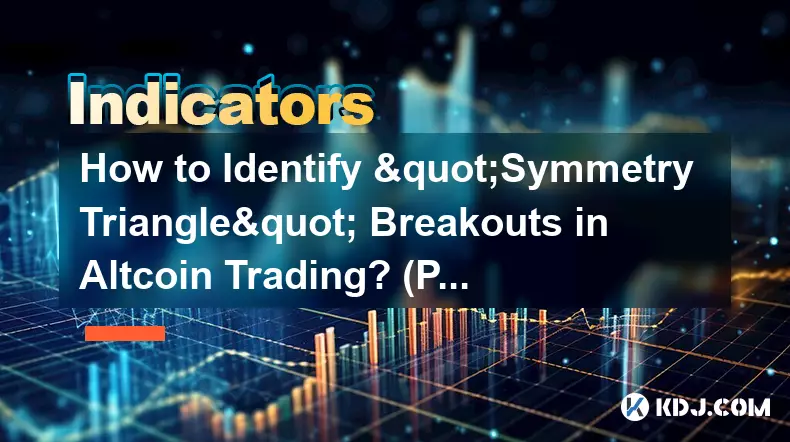
How to Identify "Symmetry Triangle" Breakouts in Altcoin Trading? (Patterns)
Feb 01,2026 at 01:39pm
Symmetry Triangle Formation Mechanics1. A symmetry triangle emerges when price action consolidates between two converging trendlines—one descending an...
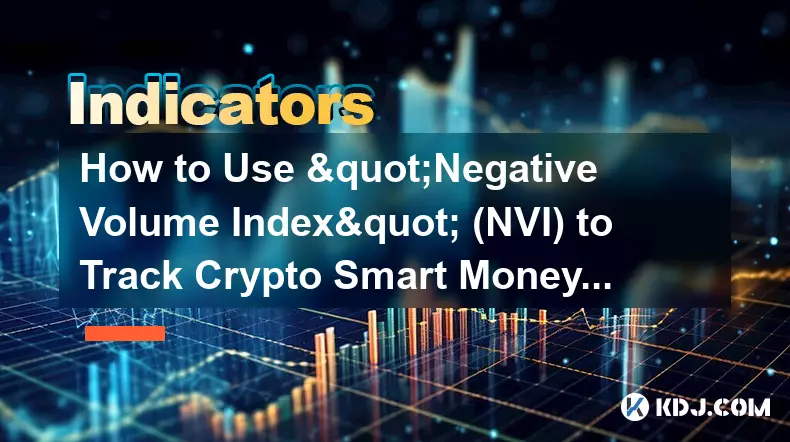
How to Use "Negative Volume Index" (NVI) to Track Crypto Smart Money? (Pro)
Feb 01,2026 at 02:40am
Understanding NVI Mechanics in Crypto Markets1. NVI calculates cumulative price change only on days when trading volume decreases compared to the prio...

How to Spot "Absorption" in Crypto Order Books? (Scalping Technique)
Feb 01,2026 at 08:39pm
Understanding Absorption Mechanics1. Absorption occurs when large buy or sell orders repeatedly appear and vanish at the same price level without trig...
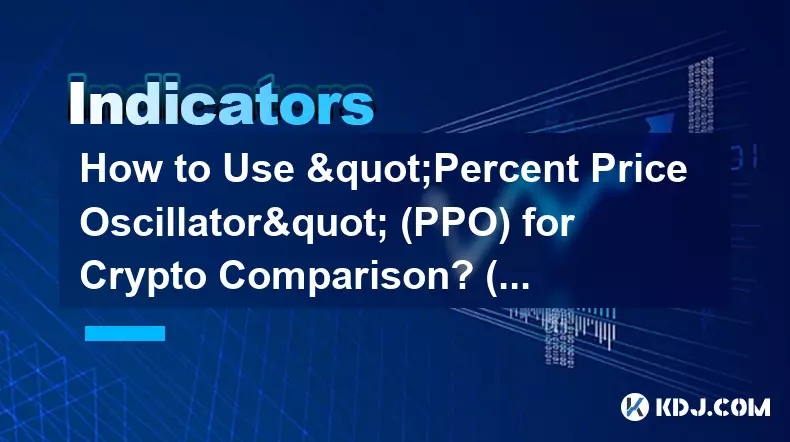
How to Use "Percent Price Oscillator" (PPO) for Crypto Comparison? (Strategy)
Feb 01,2026 at 01:59am
Understanding PPO Mechanics in Volatile Crypto Markets1. The Percent Price Oscillator calculates the difference between two exponential moving average...

How to Use "Dynamic Support and Resistance" for Crypto Swing Trading? (EMA)
Feb 01,2026 at 12:20am
Understanding Dynamic Support and Resistance in Crypto Markets1. Dynamic support and resistance levels shift over time based on price action and movin...

How to Use "Fixed Range Volume Profile" for Crypto Entry Zones? (Precision)
Feb 01,2026 at 10:19pm
Understanding Fixed Range Volume Profile Mechanics1. Fixed Range Volume Profile (FRVP) maps traded volume at specific price levels within a defined ti...

How to Identify "Symmetry Triangle" Breakouts in Altcoin Trading? (Patterns)
Feb 01,2026 at 01:39pm
Symmetry Triangle Formation Mechanics1. A symmetry triangle emerges when price action consolidates between two converging trendlines—one descending an...

How to Use "Negative Volume Index" (NVI) to Track Crypto Smart Money? (Pro)
Feb 01,2026 at 02:40am
Understanding NVI Mechanics in Crypto Markets1. NVI calculates cumulative price change only on days when trading volume decreases compared to the prio...

How to Spot "Absorption" in Crypto Order Books? (Scalping Technique)
Feb 01,2026 at 08:39pm
Understanding Absorption Mechanics1. Absorption occurs when large buy or sell orders repeatedly appear and vanish at the same price level without trig...

How to Use "Percent Price Oscillator" (PPO) for Crypto Comparison? (Strategy)
Feb 01,2026 at 01:59am
Understanding PPO Mechanics in Volatile Crypto Markets1. The Percent Price Oscillator calculates the difference between two exponential moving average...
See all articles










































































